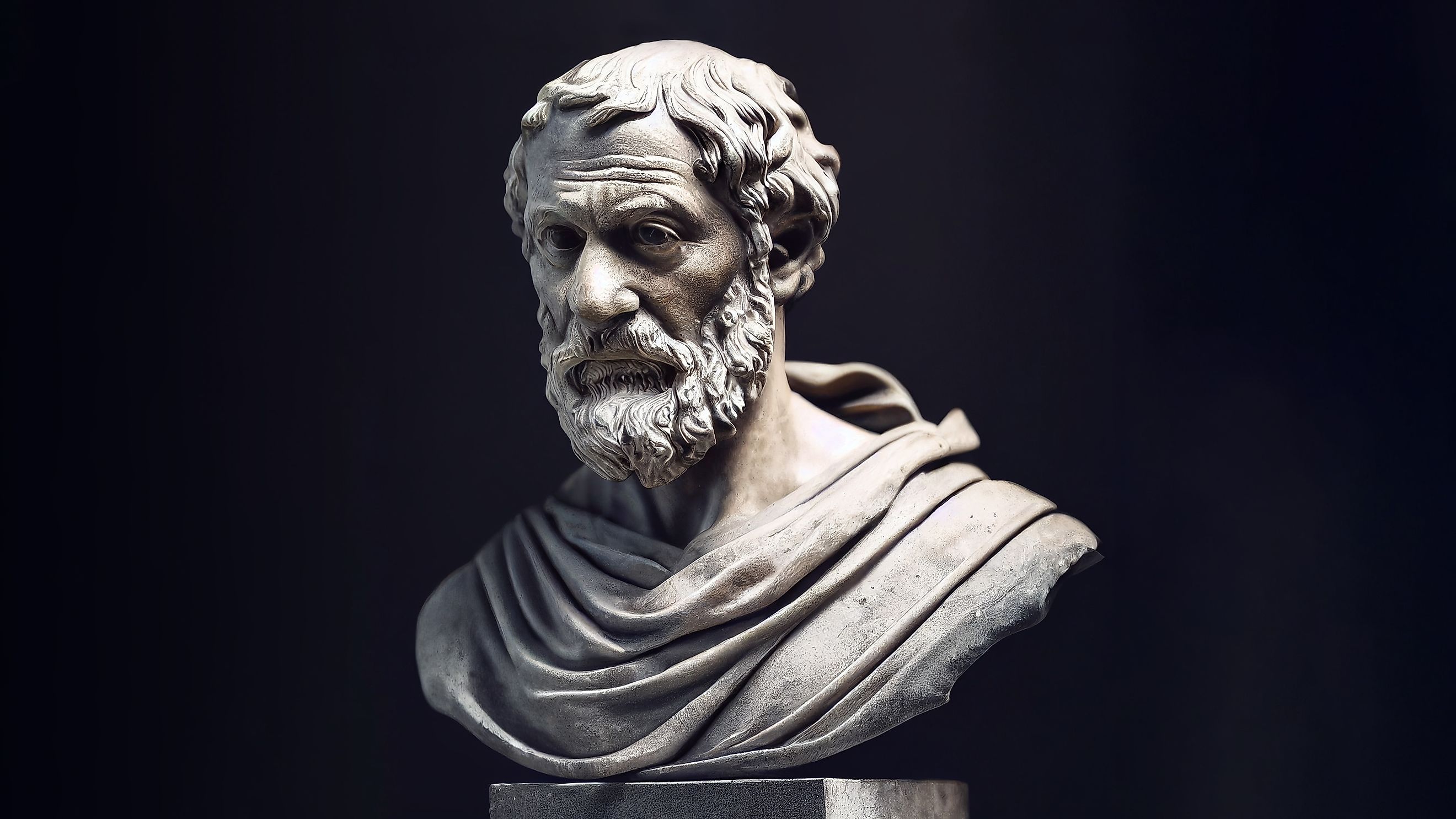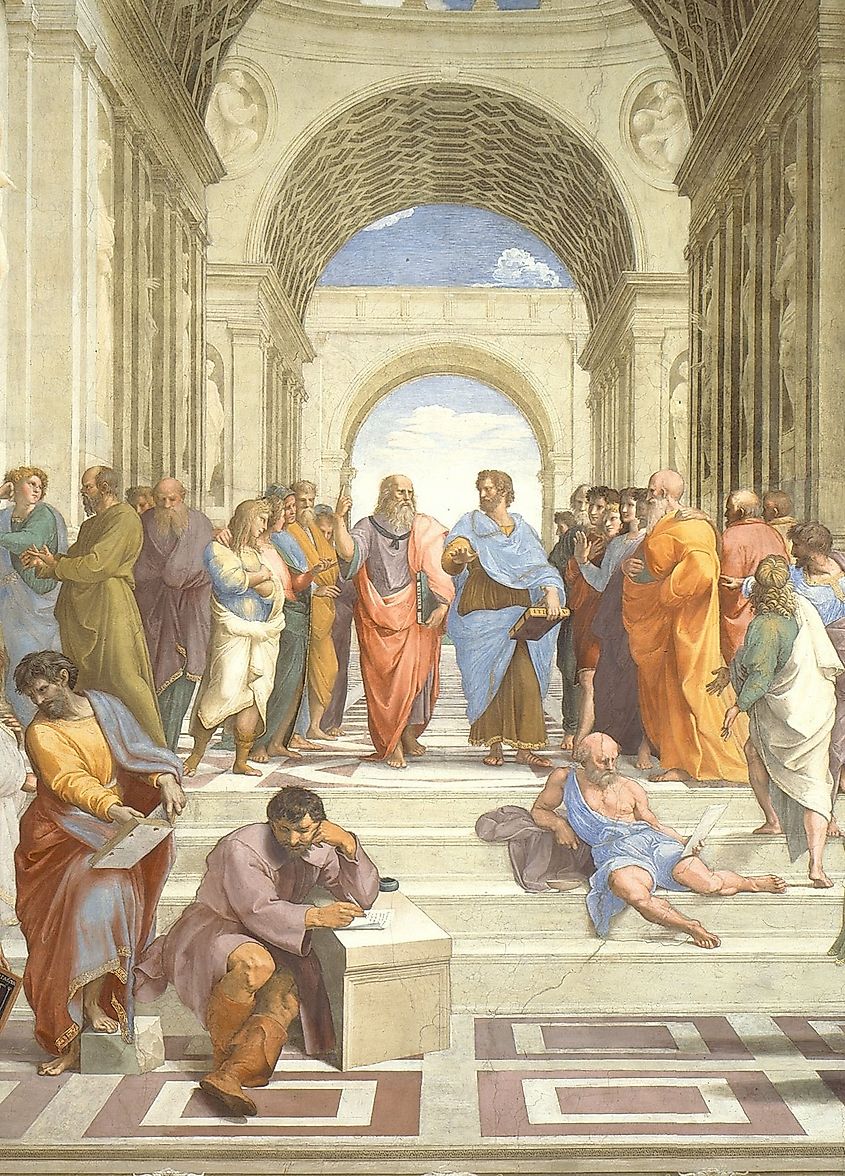
How to be Happy According To Aristotle
Happiness is a word everyone knows and wants to experience. While we all hope to be happy, the path to getting there is not always easy. There are many messages in the world about what will make us happy. According to some people, that path to happiness is with wealth and power. Others advocate for living simply, meditating, and staying humble. So what will make us happy?
This is a question that humans have been discussing for thousands of years. Some of the most famous philosophers have pondered happiness and what the path to getting there looks like. One of the most famous philosophers who talked about happiness was Aristotle. He believed the path to happiness was through virtue. Here we explore how his philosophy can help make us happy today.
Who Was Aristotle?

Aristotle is one of the most famous philosophers in history. He lived in ancient Greece from 384-322 BCE. A student of Plato, he wrote about philosophy and science, covering everything from botany to ethics and metaphysics. Throughout his life, he worked with influential people, even tutoring Alexander the Great. Aristotle's work had an enormous impact on Western thinking. Even today, Aristotelian concepts remain embedded in the modern-day curriculum. One thing everyone can learn from Aristotle's philosophy is how to be happy.
Nichomean Ethics

Aristotle's philosophy of happiness comes from his ideas around virtue. His ideas were greatly influenced by his teacher, Plato. While Aristotle focused on virtue, he rejected the idea that virtue was solely gained from formal education. This led Aristotle to write his own ethical handbook, Nicomachean Ethics, which is his theory of happiness. Aristotle founded the Lyceum in Athens, the first scientific Institute there. At the Lyceum, he gave a lecture series explaining his theory of happiness. Nichomean Ethics has ten sections that look to answer the question of how to be happy.
Think About Why You Do What You Do

Aristotle starts off Nichomean Ethics with his Teleology of Nature. He explains that all actions we take are in the pursuit of some sort of good. In other words, we have a goal for everything we do, even if we do not fully realize it yet. Think about some actions you regularly take and consider what the purpose is. For example, someone might exercise to be healthy and fit. Aristotle considers why we pursue these goals and what the ultimate goal is for human life. After contemplating, he concludes that we do everything to be happy and believes we can understand every decision this way.
Learning What Makes You Happy

Even though we do everything to be happy, we are not guaranteed happiness. You can probably recount a time when you thought doing something would make you happy, but it did not. While some things lead to happiness, other choices do not. This tells us that some choices are better than others. The problem is that we will not always know what will make us happy. We can make choices that will make us unhappy. Sometimes a relationship we thought would make us happy does not, or the career change we thought we wanted does not pan out. Since we can be wrong about what makes us happy, this shows we do not decide what makes us happy. Instead, over time, we learn about what makes us happy.
Practicing Virtue

Aristotle believed that acting virtuously makes nearly everyone happy. For him, being a good person means being good at life, which will make you happy. In this view, happiness depends on ethical and moral action. Doing something bad will make you unhappy. Acting with virtues such as courage, compassion, and justice leads to happiness.
This view might seem too simple. Some people might argue they have done morally bad things and felt happy. However, Aristotle would argue that these people have a skewed perception and do not experience true happiness. For example, someone raised to value courage will see courage as good. As a result, behaving courageously will make this person happy. On the other hand, someone raised to act without courage will find happiness in avoidance. Aristotle argues that this second person has a skewed perception of the good life. Therefore, they do not experience true happiness or eudaimonia.
Explaining Eudaimonia

In Nichomean Ethics, Aristotle had a special word for happiness, eudaimonia. This describes happiness as something that goes beyond temporary pleasure. For example, eating sweet chocolate would not induce the feeling of eudaimonia, even though you might describe yourself as feeling happy. Eudaimonia is a deeper feeling of happiness that comes from growing your virtues to flourish in your life. This means striving to be more honest, fair, and disciplined.
Do Not Underestimate Friendship

Another important aspect of happiness, according to Aristotle, is community. Two sections of Nichmachean Ethics discuss friendship. Happiness, according to Aristotle, is not just a private affair; it is also a public affair. This means who we share happiness with is very important. Ancient communities in Greece were tight-knit communities where community was an important part of life. While a lot has changed since the communities of ancient Greece, we should not underestimate the value of building strong friendships and helping our community.
Aristotle believed that by following these guidelines, you would not just have fun, but also create a meaningful life filled with eudaimonia.
Why Happiness is Important

Beyond enjoying feeling happy, you might be wondering what is so important about happiness. For Aristotle, a commitment to happiness was a commitment to the highest level of human flourishing. This creates a cycle of goodness by living virtuously, making ourselves and the world around us better. Think about how you act when you are living (as Aristotle would say) "virtuously" versus when you are not. When you act with compassion, justice, and courage, you are being more positive. This forces us to think about happiness as more than a fleeting pleasure and as a path to a more fulfilling life where we consider our impact on society.
Finding Happiness For Yourself
Aristotle's Nichomean Ethics teaches us that happiness is more than a temporary pleasure. Happiness from virtue can lead to a more fulfilling life that betters ourselves and our communities. By choosing to act more virtuously, we are choosing to be the best version of ourselves and be happier. Understanding our actions and choosing the kind of person we want to be is a big step towards self-actualization and finding our own happiness.











